Althouse |
- Sunrise — 6:37 and 6:51.
- The NYT has an article about "gravel gardens" that features the horticulturist at Madison's Olbrich Gardens.
- The Madison, Wisconsin mask requirement ended on March 1st, but businesses are still allowed to require masks.
- "The Supreme Court on Friday reinstated the death sentence of Dzhokhar Tsarnaev, who was convicted of helping carry out the 2013 Boston Marathon bombings. The vote was 6 to 3...."
- "Dickens was a social critic. Almost all his fiction satirizes the institutions and social types produced by that dramatic transformation of the means of production."
- "In her book 'Regarding the Pain of Others,' from 2003, Susan Sontag tracked the evolution of war journalism from photography to television."
- I hadn't seen a sandhill crane in many weeks...
- "My own view is that the biggest brains wouldn't be in the legal profession to start with."
- "'Patently racist': Tucker Carlson under fire for questioning Ketanji Brown Jackson’s LSAT scores /The Fox News host’s call for Judge Ketanji Brown Jackson’s LSAT score is ‘patently racist,’ says one Harvard Law School graduate."
- "At a time when our society is deeply divided and when a surge of antisemitic, anti-Asian, Islamophobic and anti-Black racism threatens the social fabric, it feels urgent..."
| Posted: 04 Mar 2022 05:02 PM PST |
| Posted: 04 Mar 2022 04:53 PM PST "'I've never liked the name, because it just doesn't conjure the look of what's possible,' said [Jeff] Epping, the director of horticulture at Olbrich Botanical Gardens, in Madison, Wis., where he created his first gravel garden in 2009, and has planted three more since.... It is precisely because of the gravel that upkeep is so drastically reduced. This is no mere top-dressing — not a mulch layer, but a deliberate foundation four or five inches deep that the garden is planted into. That depth discourages weeds from finding a foothold, while minimizing runoff, directing available water to where roots can use it. Caring for an established gravel garden requires even less attention week to week than taking care of a lawn, which 'might as well be a parking lot, as far as the garden's creatures go,' Mr. Epping said.... As in a raised bed, what is required is a perimeter barrier — in this case, about six inches high — to contain the gravel at a consistent depth throughout. Otherwise, pebbles near the edges would naturally spread out, and the thinner layer of gravel would invite weeds to self-sow...." |
| Posted: 04 Mar 2022 02:31 PM PST I walked all the way down to State Street just to enjoy the freedom to shop unmasked, but the individual shopkeeper's freedom to exclude the unmasked stopped me basically everywhere I wanted to go. So I took pictures: 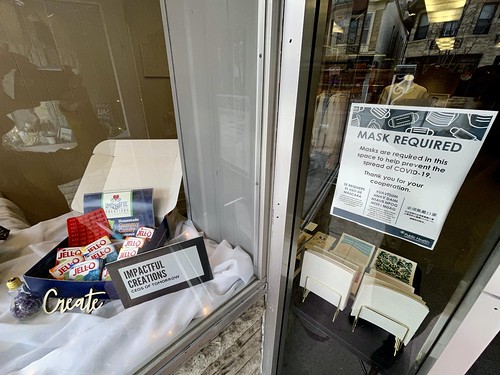 At the University buildings, there's an official mask requirement, slated to end on March 12th, so I couldn't go to the art museum... ... or the Institute for Discovery... |
| Posted: 04 Mar 2022 10:13 AM PST
Why fight for the death penalty and maintain a moratorium against it? It's valuable to preserve power, even the power that you don't currently want to use. A slightly different way to put that is: For Democrats, the best political position is to oppose Dzhokhar Tsarnaev in court — and indeed to retain the death penalty — but never to execute anyone. |
| Posted: 04 Mar 2022 09:58 AM PST "But he was not a revolutionary. His heroes are not even reformers. They are ordinary people who have made a simple commitment to decency. George Orwell, who had probably aspired to recruit Dickens to the socialist cause, reluctantly concluded that Dickens was not interested in political reform, only in moral improvement: 'Useless to change institutions without a change of heart—that, essentially, is what he is always saying.' In fact, a major target of Dickens's satire is liberalism.... [I]n nineteenth-century England the typical liberal was a utilitarian, who believed that the worth of a social program could be measured by cost-benefit analysis, and very likely a Malthusian.... One of Dickens's memorable caricatures in 'Bleak House' is Mrs. Jellyby.... We see her at home obsessively devoted to her 'Africa' project, while neglecting, almost criminally, her own children.... But Dickens is not ridiculing Mrs. Jellyby for caring about Africans. ... [S]he was based on a woman Dickens had met, Caroline Chisholm, who operated a charity called the Family Colonization Loan Society, which helped poor English people emigrate. And Mrs. Jellyby's project is the same: she is raising money for families to move to a place called Borrioboola-Gha, 'on the left bank of the Niger,' so that there will be fewer mouths to feed in England. She's a Malthusian. " From "The Crisis That Nearly Cost Charles Dickens His Career/The most beloved writer of his age, he had an unfailing sense of what the public wanted—almost" by Louis Menand (The New Yorker). |
| Posted: 04 Mar 2022 09:49 AM PST "The Spanish Civil War marked the emergence of the professionalized photojournalist, equipped with a Leica 35-mm. film camera to capture the conflict on the ground. The Vietnam War was the first war to be televised, and it made the carnage in conflict zones 'a routine ingredient of the ceaseless flow of domestic, small-screen entertainment,' Sontag wrote. Now the small screens are our phones.... For Sontag, photographs had a 'deeper bite' than video when it came to documenting war. A single image taken on the ground could endure for generations, like Robert Capa's Spanish Civil War photograph 'The Falling Soldier.' Social-media documentation is less likely to last—it's ephemeral by design.... As Sontag wrote, 'Photographs of an atrocity may give rise to opposing responses. A call for peace. A cry for revenge. Or simply the bemused awareness, continually restocked by photographic information, that terrible things happen.'... The flood of TikTok videos is perhaps more likely to evoke our bemused awareness.... Yet... traditional news organizations are pulling their journalists to safety. Social media is an imperfect chronicler of wartime. In some cases, it may also be the most reliable source we have." From "Watching the World's 'First TikTok War'/Social media's aesthetic norms are shaping how Ukrainians document the Russian invasion. Is it a new form of citizen war journalism or just an invitation to keep clicking?" by Kyle Chayka (The New Yorker). You can see TikTok's Ukraine videos at #ukraine. |
| I hadn't seen a sandhill crane in many weeks... Posted: 04 Mar 2022 09:29 AM PST
... so I took a long look this morning — as the sun rose over Lake Mendota. |
| "My own view is that the biggest brains wouldn't be in the legal profession to start with." Posted: 04 Mar 2022 08:03 AM PST Writes Balfegor, in the comments to the previous post, where I'd said, "But what if we could find the 9 biggest brains in the law field and make a Supreme Court out of them? We might discover they make terrible Justices." I wrote "biggest brains in the law field" because I thought being in the law field would be a basic qualification to get started on the job, but I wrote that thinking these are not the biggest of the big brains. That made me think about Laurence Tribe, the noted Harvard professor:
Inexplicably! If he's so brilliant, why can't he explicate his own motivations? And then... what is brilliance? "I had trouble with arithmetic — not with mathematics, I love math — but manipulating numbers was never my strength. The kind of math I loved and excelled in was algebraic topology, very structural things, and my senior thesis was about the theory of n-dimensional knots in space. But despite that, I can't find my way around physical space at all. I have no geographic sense even though I have a very right-hemisphere brain. I tend to think pictorially. I draw pictures. I do Venn diagrams. My students always enjoyed how I would scribble all kinds of diagrams on the board before class. You'd think, given that proclivity, that I would be able to find my way around. But right now, if you asked me where [the] bedroom is, I would probably point to the wrong part of the house." Brilliance comes and goes. There are different levels of intelligence in different places on the landscape of the mind, and that mind — even at the genius level — cannot tell you why this variation exists and where the gaps and shadows lie. |
| Posted: 04 Mar 2022 06:17 AM PST I don't know about "patently," but it is racist. I considered saying "insidiously racist," but, on reflection, I'll say it's somewhere on the insidiously-to-patently continuum. Did we ever discuss any other Supreme Court nominee's LSAT score? Here's the Carlson quote: "So is Ketanji Brown Jackson — a name that even Joe Biden has trouble pronouncing — one of the top legal minds in the entire country? We certainly hope so … so it might be time for Joe Biden to let us know what Ketanji Brown Jackson's LSAT score was." It's very easy to say "Brown" and "Jackson," so he's just calling attention to Ketanji. What her parents named her has nothing to do with the nominee's qualifications, so why bring this up in the middle of demanding evidence of her basic intelligence? You don't have to be a genius to see that's racial. As for "top legal minds"? Since when are Supreme Court nominees chosen from "the top legal minds"? I've never noticed that, and I've been watching the American legal scene for 40 years. In any case, law isn't like math. There's no objective test for law aptitude, and there are plenty of American law school graduates with LSAT scores in the 99th percentile who've never displayed a glint of brilliance. But what if we could find the 9 biggest brains in the law field and make a Supreme Court out of them? We might discover they make terrible Justices. And, by the way, I believe that the 9 biggest brains — whoever you are out there, Big Brains! — would refuse to take the job. Too boring. Too restricted. No freedom to rove all over the intellectual landscape. Let's stop pretending we love the work of the very smartest people. Not in law we don't. We actually prefer something more ordinary. We want focus on texts, adherence to precedent, grounding in practical reality. It's dumb to be an intelligence snob here, and Tucker's posturing is particularly dumb. Virulently dumb. |
| Posted: 04 Mar 2022 05:34 AM PST "... that we develop new language for discussing the relationship between identity, ancestry, history and science. DNA analysis could help create that language by offering more nuanced ways of looking at individual origins and a more unifying narrative about our shared heritage.... [But race will not] magically disappear anytime soon.... [T]he social reality of race is undeniable. And genetics — or, for that matter, any science — has the potential to be misused, co-opted by racist ideologies and employed to bolster harmful narratives about racial purity or biological superiority. But if we can, at the very least, embrace the understanding that race (a toxic social construction) and ancestry (a shared genetic history) are not only distinct but also fundamentally opposed — and teach that in our classrooms — it could go a long way toward freeing us from some of the binds in which scientific racism have trapped us." I added the boldface. |
| You are subscribed to email updates from Althouse. To stop receiving these emails, you may unsubscribe now. | Email delivery powered by Google |
| Google, 1600 Amphitheatre Parkway, Mountain View, CA 94043, United States | |

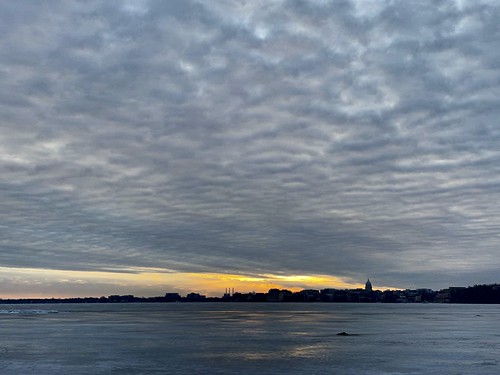
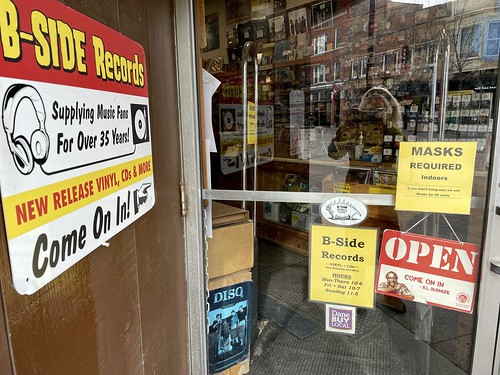
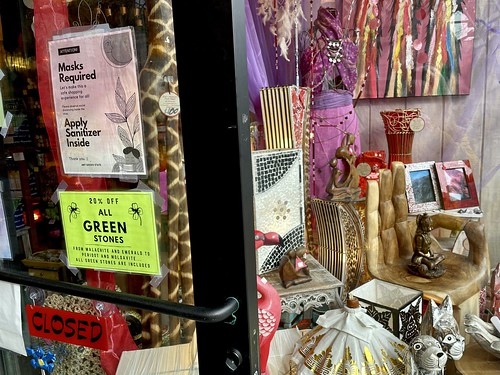
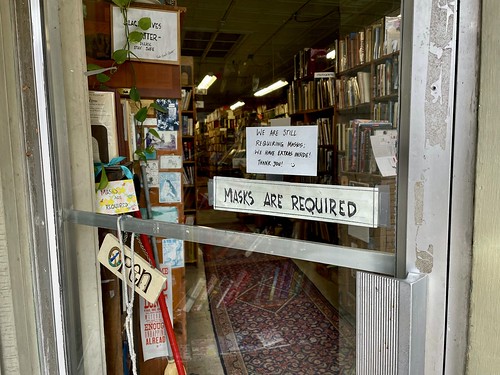

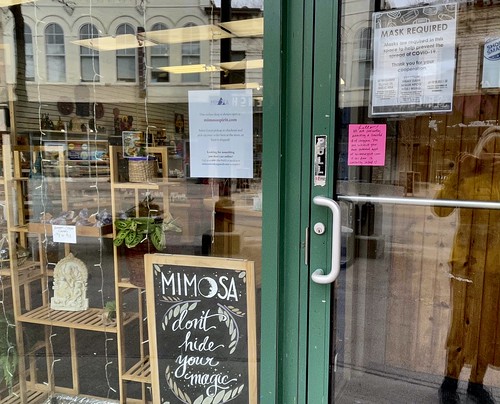
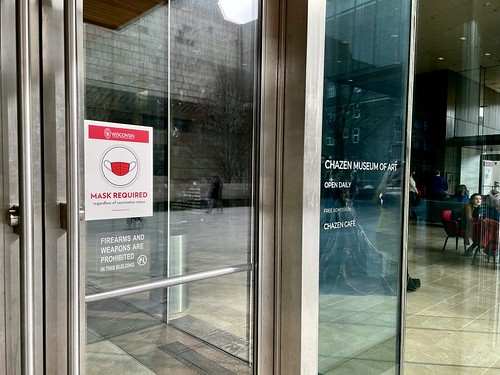
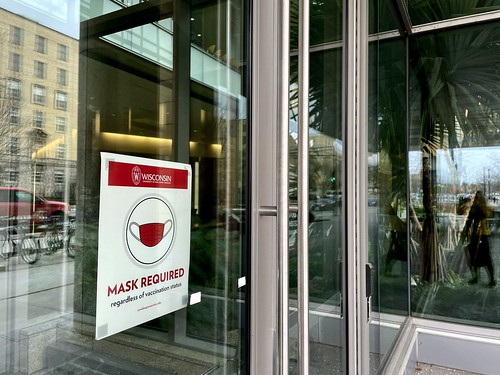
No comments:
Post a Comment
Note: Only a member of this blog may post a comment.